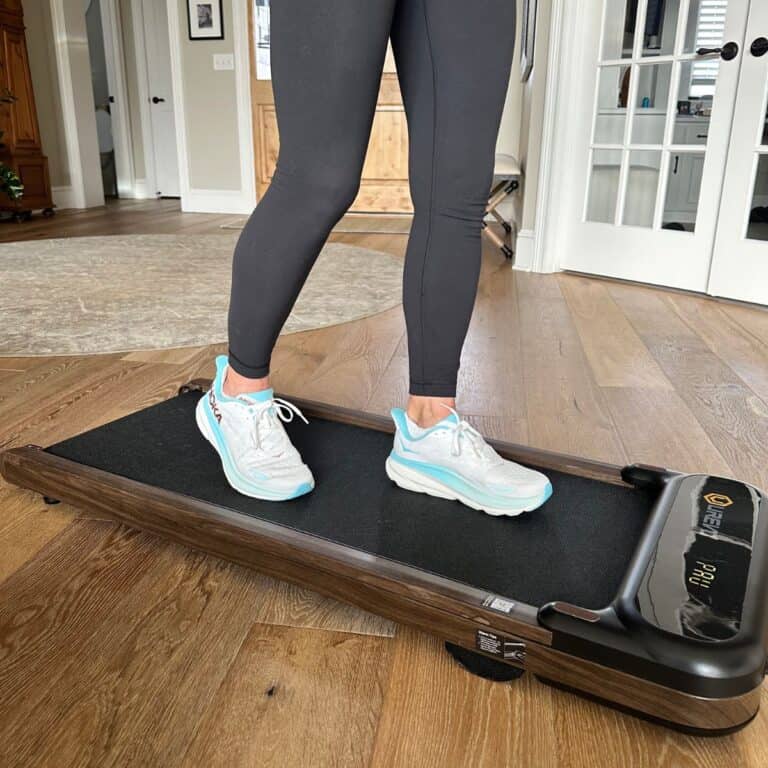Menopause brings a host of hormonal changes, and one of the most noticeable can be how it affects your hair. Thinning, dryness, and changes in texture are common, but I want you to know—you don’t have to accept these changes without a fight!
As a personal trainer and women’s fitness expert, I believe that taking care of yourself inside and out is key to feeling strong and confident at any stage of life.
There’s a lot I do differently at 59 vs. 39, and my hair care is no exception!
Here are my top 10 tips to help you maintain strong, healthy hair during and after menopause:
Get the Latests Posts to Your Inbox
Join over 100,000 followers who are inspired to make healthier lifestyle choices as they age!
1. Eat a Nutrient-Rich Diet
What you eat plays a huge role in the health of your hair. I always emphasize a well-balanced diet full of vitamins and minerals to support your body, and that includes your hair.
Focus on foods high in omega-3 fatty acids, iron, zinc, and biotin—like salmon, leafy greens, nuts, and eggs. These nutrients nourish your hair follicles and promote growth, keeping your hair strong and resilient.
Also consider taking collagen. I’ve been adding a scoop of collagen powder to my AG1 greens every morning and I think it helps with hair, skin and nails.
2. Stay Hydrated
I can’t stress this enough—hydration is everything! Hormonal changes during menopause can leave your hair and scalp feeling dry. Drinking plenty of water helps maintain elasticity and prevents breakage.
If you struggle with water intake, try carrying a reusable bottle with you or adding a splash of lemon for flavor.
I add a packet of LMNT to my water everyday – it’s salty in tastes no doubt but now I’m addicted. I drink it because I need the electrolytes and in particular the salt is helpful with hydration. I usually drink it before, during and after my workouts.
3. Use a Gentle, Sulfate-Free Shampoo
The products you use matter. Many shampoos contain harsh sulfates that strip your hair of its natural oils, making it more brittle. I recommend switching to a sulfate-free formula that cleanses gently while preserving moisture.
Look for shampoos with natural oils or hydrating ingredients like aloe vera to keep your hair soft and shiny.
4. Incorporate Scalp Massages
Just like exercise improves circulation in your body, scalp massages improve blood flow to your hair follicles, encouraging growth. I love using my fingertips to massage my scalp for a few minutes each day or when I’m shampooing.
If you want an extra boost, try using a nourishing oil like coconut or argan oil to keep your scalp hydrated.
5. Minimize Heat Styling
I get it—sometimes we want to style our hair for a polished look. But excessive heat from blow dryers, curling irons, and straighteners can weaken hair, leading to more breakage.
Whenever possible, air-dry your hair or use a heat protectant spray if you need to style.
I not only color my hair, but I add highlights and I know the bleach is super hard on my hair so I try to be really careful with heat and when I do use heat, keep it low.
6. Use Deep Conditioning Treatments
Menopause can make hair feel drier and less manageable, so I make sure to use a deep conditioning treatment or hair mask at least once a week.
Look for masks with keratin, argan oil, or shea butter to restore moisture, improve elasticity, and keep your hair looking healthy.
7. Avoid Tight Hairstyles
Wearing your hair in tight ponytails, braids, or buns can put unnecessary stress on your hair follicles, leading to breakage and thinning.
Instead, opt for looser hairstyles that are gentler on your scalp. Or try ponytail holders that are more gentle than elastic. I’m here to tell you the scrunchie is back in style and it causes less breakage!
I also recommend switching up your hairstyles frequently to prevent tension-related damage.
8. Get Regular Trims
I make it a priority to get my hair trimmed every 6-8 weeks to keep it looking fresh and healthy. Regular trims prevent split ends and give your hair a fuller appearance, which is especially important if you’re experiencing thinning.
Talk to your stylist about cuts that add volume for a thicker look.
9. Consider Topical Treatments
If you’re struggling with menopause-related hair thinning, topical treatments like Vegamour may help. These treatments can stimulate hair growth and slow down hair loss when used consistently.
Also, I have friends who have had success with Nutrafol but I can’t speak from experience on these.
If this is something you’re considering, consult with a healthcare professional to find the best option for you.
10. Manage Stress Levels
Stress impacts everything—your energy, your sleep, and yes, even your hair! Chronic stress can contribute to hair loss by disrupting hormonal balance.
That’s why I prioritize stress-reducing activities like yoga, meditation, and daily walks. Managing stress is crucial for your overall health and for keeping your hair strong and vibrant.
Ladies, you don’t have to let menopause take control of your hair health! With the right habits, you can maintain strong, beautiful hair at any stage of life.
Take care of yourself, nourish your body, and give your hair the love it deserves!


